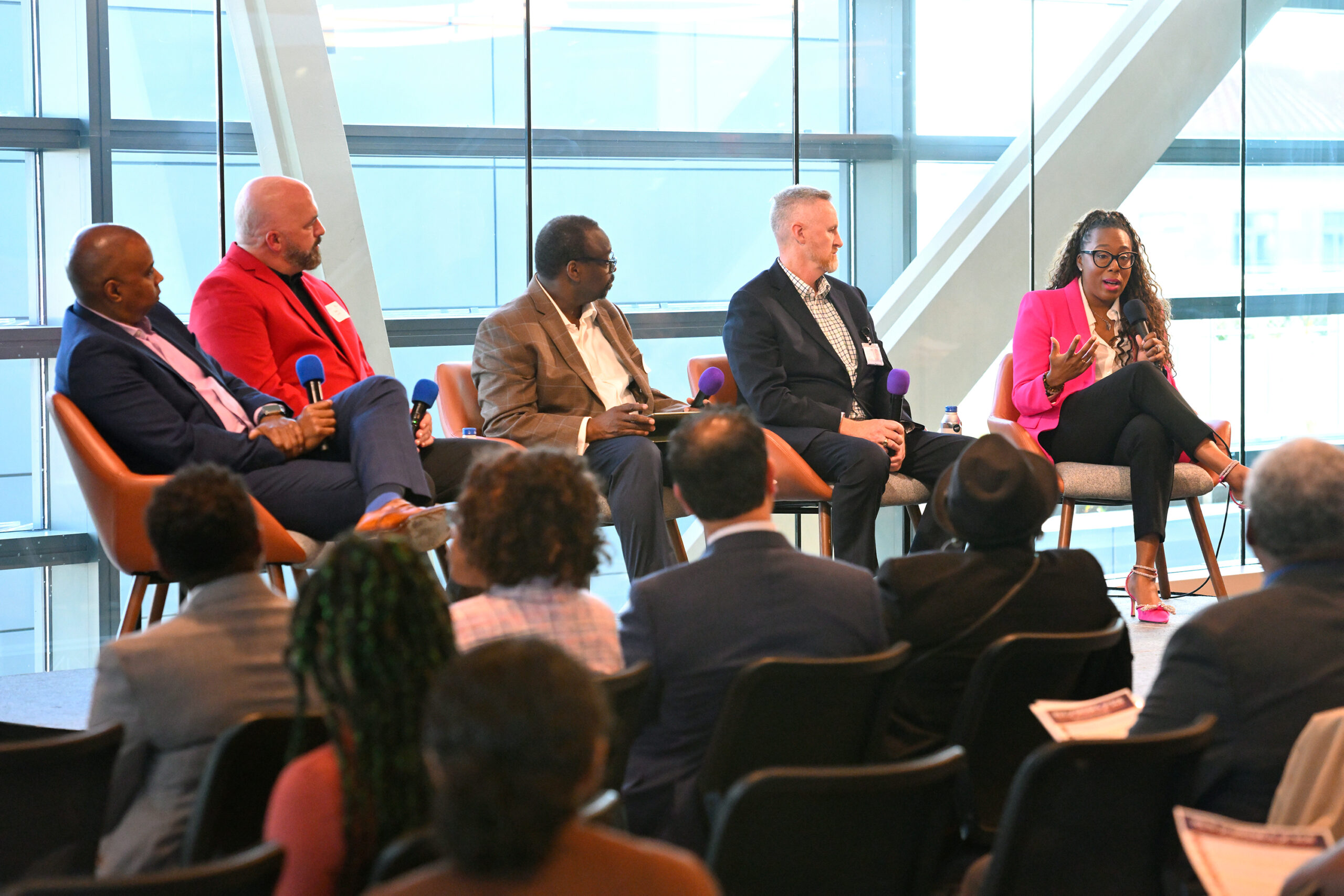3 things entrepreneurs need to know about AI
The technology holds vast potential to empower communities nationwide—if it’s deployed properly

- Image Will Kirk
Key Takeaways:
- By focusing on fears about AI, its potential to transform health care, education, and local communities is often overlooked.
- Understanding AI’s limits and biases—and its inability to truly replace humans—is key to using the technology to its full potential.
- More regulation is needed to address data and privacy concerns around AI.
Entrepreneurship has long been a powerful tool capable of uplifting communities nationwide. Now, artificial intelligence is allowing entrepreneurs to better address the issues that impact their communities on a daily basis, a panel of health, academic, and business leaders said at a recent event hosted by Johns Hopkins University and Ward Infinity, a social entrepreneurship accelerator serving communities in Washington, D.C.
“Nothing beats a community coming together to solve problems,” said Pamela K. Isom, CEO of IsAdvice & Consulting at the event, held at the Johns Hopkins University Bloomberg Center. “As a small business owner today, I use AI to fuel and empower communities. The more all of us learn AI and apply AI, the more empowered we become.”
Here are three takeaways from the event, the latest in “The Power Shift” series, which examines ways entrepreneurship can empower, educate, and equip communities to solve economic and health disparities and create community vibrancy.
- Don’t fear AI—leverage it.
Many conversations around AI focus on the negative “what ifs”—whether adversarial nations will use it to do harm, whether it will be applied to weapons systems, and even whether it will become sentient and take control of humanity. These concerns fail to consider the tremendous potential of AI to improve health care access, boost education and strengthen local economies.
“Fear and ignorance are the architects of stagnation, and they will prevent us from moving forward,” said Ian McCulloh, associate professor at the Bloomberg School of Public Health and the Whiting School of Engineering at Johns Hopkins University. “A lot of people want to focus on fears of AI, and we overlook the good from AI.”
By focusing on these potential negatives, many fail to grasp the bigger picture, panelists added.
“If we don’t participate in understanding how to leverage AI for health, for energy, for all those pieces, we’re just going to take longer to build a better society and a better world,” said Al J. Browne, director of Community Health Design + Innovation at Ward Infinity, which is based at Washington’s Sibley Memorial Hospital and co-run by Johns Hopkins University and Johns Hopkins Medicine.
- Understand AI’s limitations.
Still, panelists warned, AI has been trained on biased datasets, increasing the need for human intervention to ensure the technology is used responsibly and inclusively. Equally important is understanding that AI can’t fully replicate what it means to be human.
“AI can never replace human touch,” said Marissa Nelson, CEO and founder of Fertility Haven and a Ward Infinity alumnus. “When you’re grieving or going through something, nothing is going to replace human contact. I don’t think that AI is coming for doctors, and I don’t think it will come for therapists.”
In addition, AI carries mental health implications as—just like other technologies—it can be used as a poor replacement for the real social connections people need to live happy, healthy, and fulfilling lives, panelists said.
“We are the most informed generation in [the history of] mankind. You can get a tremendous amount of information from the phone in your pocket. Yet we’re also the most depressed,” McCulloh said. “We have this illusion that online contact is real contact. It’s not the same … it’s an illusion, and it takes us away from real social connection.”
- Policymakers should regulate AI.
AI is moving so quickly that policymakers have yet to catch up—but they need to do so quickly given potential issues related to data and privacy.
“Privacy is at the heart of AI, it’s at the heart of everything we do. It’s the thing we most often take for granted. We sign away our data every day at the click of a screen and the touch of a mouse,” said Chris M. Roberts, senior director of Quest Software Public Sectors Inc. “We have zero control—there have been no policy decisions on how our data is supposed to be treated.”
That’s particularly important when it comes to health care—a sector that affects every single American and is often hit by cyberattacks.